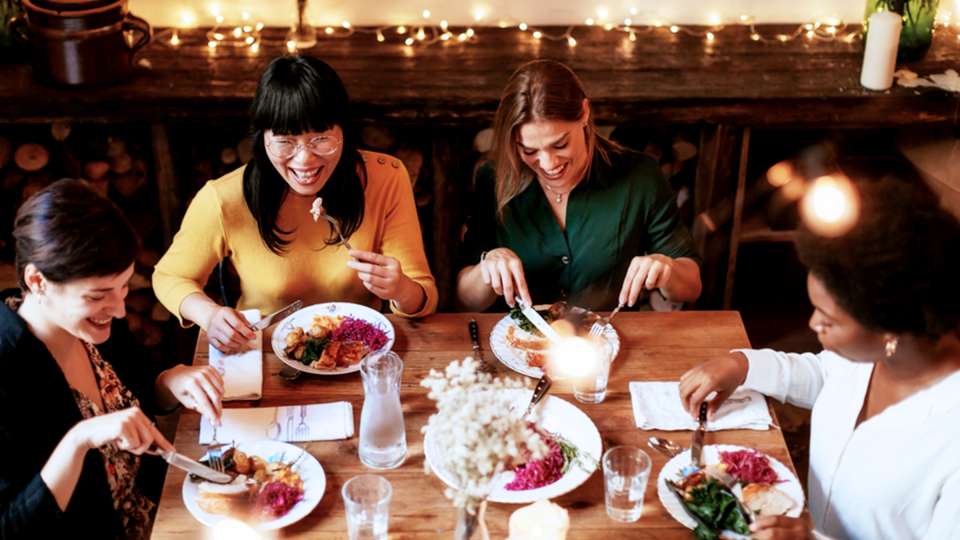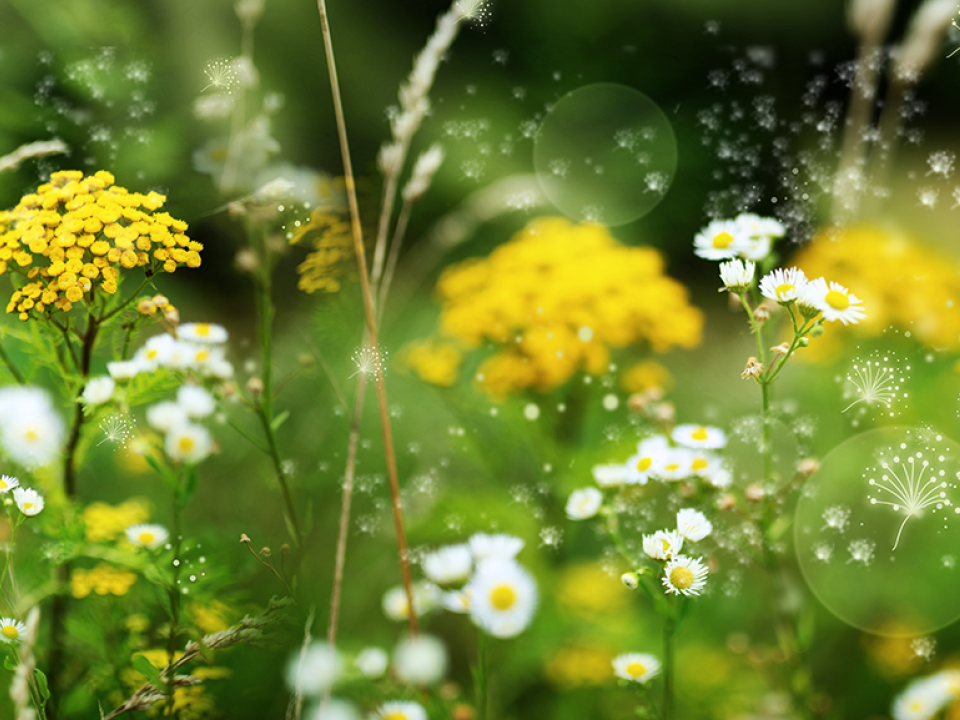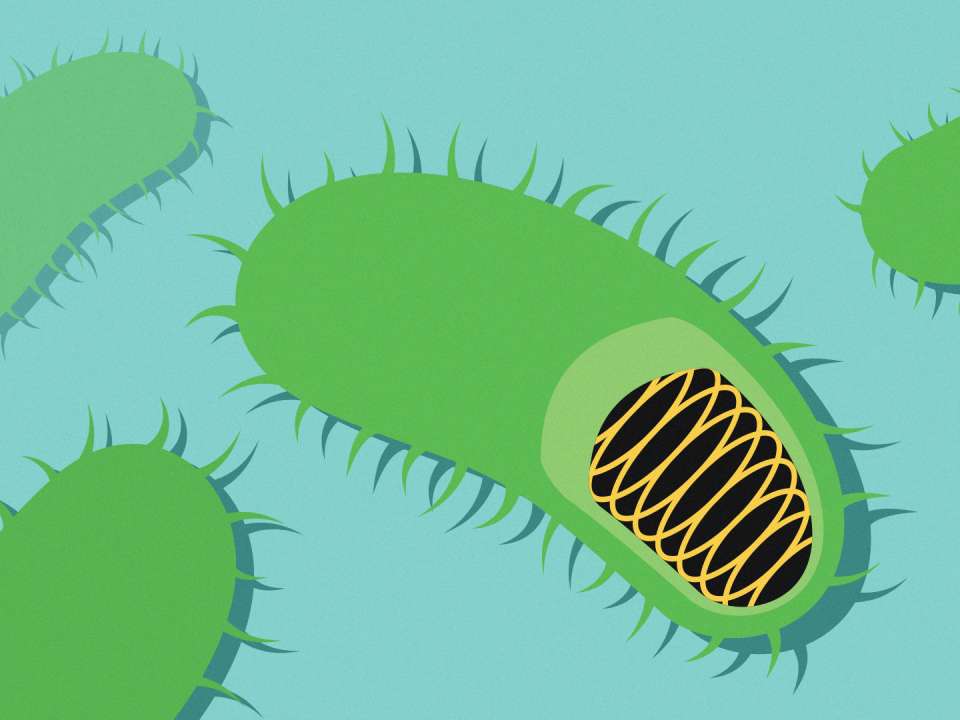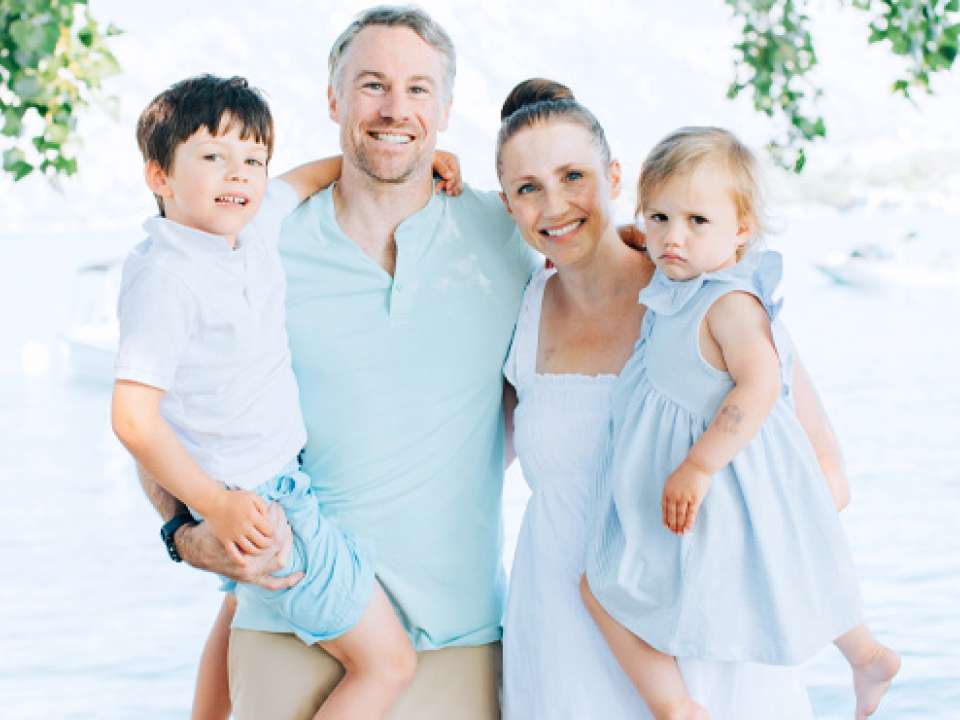
The holiday season is upon us and, now more than ever, many of us are hoping to spend a little time with our loved ones.
But with the COVID-19 pandemic still present and the onset of severe flu and respiratory syncytial virus (RSV) seasons, how can we gather with friends or family for the holidays without getting sick?
“It’s important to have family gatherings, but we know vaccinated people can still get infected with COVID-19. Unlike last year, this year we also have both RSV and flu in high proportions making both children and adults really sick,” says Dr. Janet Englund, an infectious disease specialist and professor in the Department of Pediatrics at the UW School of Medicine.
To keep each other healthy, we need to plan for the holidays and take precautions to prevent the spread of these three viruses.
Get vaccinated against COVID-19 and flu
The single most important safety measure is to get vaccinated before getting together, Englund says.
This includes COVID-19 vaccines and boosters as well as the flu vaccine. (Unfortunately, there is not a licensed RSV vaccine yet, though trials are underway.)
“Getting a booster at least six months after your shot is the best way to protect against omicron and delta, protect yourself and prevent spread,” Englund says. “And now is the time to get the flu vaccine, before meeting friends and family over the holidays.”
Consider who is coming and discuss risk
Before the event, think about who might be at greater risk in your group and how you can help prevent them (and everyone else) from getting sick.
The safest option is for everyone to be vaccinated before getting together. This is especially important for adults 65 and older, young children, people with underlying health conditions and pregnant people, who are all at higher risk of severe illness from COVID-19 and flu.
It helps to determine everyone’s vaccination status and share this information so that each guest can make an informed decision on whether they feel safe to attend the event.
“It’s absolutely acceptable to ask about vaccination status before guests show up,” Englund says. “What you decide depends on what your family situation is and who you’re trying to protect. You have to do what’s best for you and best for your family.”
For those who are not vaccinated, testing for COVID-19 immediately before the event may also help keep people safe.
Test for COVID-19 before you travel
On that note, Englund says you can mitigate spread by getting a viral COVID-19 test as close to your time of departure and no more than three days in advance of travel.
You’ll also want to research your destination to know if it is a high-infection area (in which case it might be best to postpone your trip), as well as if there are any additional COVID-19 testing and safety requirements you need to follow.
Driving will also help you avoid catching any bugs or viruses from being in close quarters to others on a plane. If you must jet set, practice plane travel safety measures, such as wearing a mask on the plane and in the airport and washing your hands often.
Avoid gatherings if you’re sick or symptomatic
This one is tough but straightforward: If you have symptoms of COVID-19, flu or RSV — such as a runny nose, sore throat, cough, headache or muscle aches, fever, or loss of taste or smell — you should not go to the holiday gathering.
Even if you think it’s a cold? Even if it’s just a sniffle? Even if you get tested? Yes, Englund says, even then.
Though it may be devastating not to attend the holiday gathering in person, keeping your loved ones healthy is also essential.
Practice hygiene and health habits
To help prevent yourself from getting sick in the first place, it helps to wash your hands and wear a mask in crowded areas.
“We are all tired of this,” Englund says. “But we need to continue doing what we all know has been working pretty well.”
While you likely know them by heart, here are the practices that will allow you to get together with loved ones without unnecessary risk: wash your hands often, wear a mask in crowded settings and move activities outside when possible.
Hand washing is essential for decreasing your risk of RSV, which is most often spread when you touch something contaminated with the virus (think, the doorknob someone touched after sneezing).
“You should have soap and water available so people can wash their hands when they come over and when kids come home from school,” Englund says.
What can you do to cope with holiday blues or loneliness?
If you’re missing out on the holidays because of illness, it’s normal and OK to feel disappointed or lonely.
To help yourself cope, take advantage of technology to connect with loved ones you can’t see in person and set aside time to care for yourself.
Practicing small healthy habits can go a long way to making you feel better, whether you’re going on a walk, making art or writing in a gratitude journal.
Ultimately, we will all need to adapt to help keep one another healthy — both mentally and physically.
The info in this article is accurate as of the publishing date. While Right as Rain strives to keep our stories as current as possible, the COVID-19 pandemic continues to evolve. It’s possible some things have changed since publication. We encourage you to stay informed by checking out your local health department resources, like Public Health Seattle King County or Washington State Department of Health.

 Healthy ideas for your inbox
Healthy ideas for your inbox





